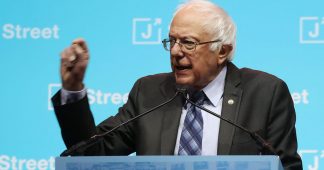May 11, 2016
Michael Hudson, Speech to SANICADEMIA, May 10, 2016 in Villach, Austria for the 5th International Congress on Geriatrics and Gerontology = 59th Austrian Convention for Hospital Management, “We’re Living Longer: The healthcare challenges for today and tomorrow.”
The most obvious approach to look at how European care for the elderly will evolve is to project technological trends and the costs of people living longer as diagnostic equipment, drug treatments and other medical science continues to improve. This kind of projection shows a rising cost to society of pensions and health care, because a rising proportion of the aging population is retiring. How will economies pay for it?
I want to point to some special problems that are looming on the political front. I assume that the reason you have invited me from America is that my country has been doing just about everything wrong in its health care. Its experience may provide an object lesson for what Europe should avoid (and indeed, has avoided up to this point).
For starters, privatization is much more expensive than European-style Single Payer public health care. Monopoly prices also are higher. And of course, fraud is a problem.
America’s Obamacare and health insurance laws have been written by political lobbyists for special interests. So has the TTIP: Transatlantische Handelsabwollen. Since George W. Bush, the U.S. Government has been prohibited from bargaining for low bulk prices from the pharmaceutical companies. Most Americans think that Health Management Organizations (HMOs) are rife with corruption and billing fraud. The insurance sector has made a killing by spending a great deal of money on bureaucratic techniques to reject patients who seem likely to require expensive health care.
Doctors need to hire specialists working full time just to fill out the paperwork. Error is constant, and any visit to the doctor, even for a simple annual checkup, requires many hours by most patients on the phone with their insurance company to correct over-billing.
The dream of U.S. “free market” lobbyists to shift the costs of health care onto its users instead of as a public program. According to current plans backed both by the Republicans and by much of the Democratic Party leadership, these user costs ideally would be paid by pre-saving in special “health savings” accounts, to be managed by Wall Street banks as a kind of mutual fund (with all the financial risks this entails – the same kind of risks that are troubling most U.S. pension funds today).
The reason why the U.S. discussion of health care for the elderly is so relevant for Europeans is that the Transatlantic Trade and Investment Partnership (TTIP) that President Barack Obama pushed on German Chancellor Angela Merkel two weeks ago. It poses a far-reaching threat to European policies.
The agreement has been drawn up in secret, and has only been available to Congressmen in a special room as a read-only copy. Not even Congressional staff have been permitted to see the details. The reason is that the terms of the TTIP are so awful that it could never be approved by voters. That is why the lobbyists for banks, insurance companies, drug companies, oil and gas companies and other special interests that wrote the law are trying to bypass democratic government and going directly to Brussels – and in the United States to the Executive Branch of government.
The aim of the TTIP is to replace the application of national laws with special courts of referees nominated by the special interests. This includes the organization of health care. Last week Britain’s main labor union, Unite, warned that the TTIP would mean that the National Health Service would have to be wound down and privatized.[1] Although “Austria, Germany, Greece and Italy do have explicit reservations in the TTIP text to protect existing rules relating to healthcare,” the privatization lobbyist strategy is to have the treaty “provisionally applied” to force matters, by backing compliant politicians. Objections will be sidestepped as the “provisional’ law becomes a fait accompli.
I think that the best perspective that I can give you is to discuss how the various interest groups are working to shape political decisions regarding the public and private role of health care. This is an area I have been involved with for forty years. In 1976, I contributed the economic section for two reports by The Futures Group in Glastonbury, Connecticut for the National Science Foundation analyzing the economic and financial consequences of life extending technology: When We Live Longer – Prospects for America (with Herb Gurjuoy et al., 1977) and A Technology Assessment of Life-Extending Technologies (Vol. 5: Demography, Economics and Aging, 1977). I believe these were the first reports to pinpoint the implications for the Social Security system of an aging population and its inter-generational financial tensions.
American politicians and economic futurists were concerned with the effect on public health budgets of a rising proportion of the population able to live out the maximum present human lifespan of 125 years (called “squaring” the life expectancy curve). What is the best public response to what should be a dream being realized? More to the point, how should governments cope with special interests seeking merely to profiteer from such breakthroughs – and use their promise in an extortionate manner?
Every interest group has its own perspective. Most politicians in the United States are lawyers, and they worried that the Social Security, pension and health care contracts were a legal right that could not be broken or modified. President Eisenhower had called Social Security the “third rail” of American politics – meaning that any politician or party that sought to downgrade its promises would quickly be voted out of office.
It was obvious that a population living longer would receive more Social Security and pension payments, and that a rising proportion of national income would be spent on their health care. Some of the politicians I talked to were so pessimistic about the costs involved that one said that he was sorry that kidney dialysis procedures had been invented, because with so many people having kidney problems, it would cost a fortune to provide this service to everyone who medically needed it.
Some politicians sought ways to not to fund expensive medical technologies – on the ground that if these were developed, the government might have an obligation to supply the most expensive technologies (especially dialysis and organ transplants) to the population at large. The costs of doing this would absorb nearly all the economic growth.
One set of futures envisioned that the more costly medical treatments might become available only on islands – in the Caribbean, for instance. After all, did not Hippocrates practice on the island of Cos?
As forecast decades ago, health care is the most sharply rising cost in the United States. What none of us were cynical enough to forecast was the corrupt role played by special interests in maximizing the costs by treating each element of health care as a profit center – indeed, as an opportunity to extract monopoly rent.
Privatization of health insurance under Obamacare has been a bonanza for the financial sector and the insurance industry. Initially a Republican “free market” proposal, it required the Democratic Party in power to disable popular pressure for “Medicare for all” in the form of single payer public health care. No discussion within Congress was even permitted to favor public health care. (I was economic advisor to Presidential candidate Dennis Kucinich, whom the Democratic Party leadership blocked from even discussing a public option in the Congressional debate.)
The enormous power of lobbyists from the pharmaceutical industry bought the loyalty of politicians who blocked anti-trust laws from being applied against the drug companies. As I noted earlier, these lobbyists even succeeded in blocking the government from negotiating directly with the drug companies over prices.
I mention these points because the U.S. solution should serve as an object lesson for what European and other countries should avoid in managing their care for the elderly. This is especially important to Europe, because its neoliberal policies favoring the financial sector imply a slow economic crash squeezing household and employer budgets. Five concerns are paramount.
1. Triage: restricting the most expensive health care only to the wealthy
Lower incomes lead to shorter lifespans as a result of worse health, and also suicides. Marriage and birth rates also are lower as economies polarize and growth slows. Russia, Ukraine, Latvia and other post-Soviet states show this – and it may be a forecast of European experience. This raises the ratio of elderly to working-age populations. A slowly growing labor force must support more and more retirees.
Studies in almost every country have shown that health standards and lifespans are polarizing between wealthy and poor. A recent U.S. study notes: “The life-expectancy gap between rich and poor in the United States is actually accelerating. Since 2001, American men among the nation’s most affluent 5 percent have seen their lifespans increase by more than two years. American women in that bracket have registered an almost three-year extension to their life expectancy. Meanwhile, the poorest five percent of Americans have seen essentially no gains at all.”[2]
This has important implications regarding recent proposals to raise the retirement age at which people can qualify for Social Security. Only the well to do are living longer, not blue-collar labor. Raising the retirement age would deprive the latter of the retirement years that better-paid individuals enjoy as a result of their healthier lives.
I mentioned above one scenario drawn by futurists: that the best medical care might only be available in “medical islands” or their equivalent in the United States, called “Cadillac health insurance plans.”
2. Blaming the victims for their unhealthy environment as the problem were their “personal responsibility.”
George W. Bush recommended that the poor simply should go to hospital emergency wards when they get sick. This obviously is the most expensive approach. Prevention is by far more economical. But public moves along this line are being fought tooth and nail by the tobacco and soft-drink industries, and other purveyors of bad health.
Better health and longer lifespans are achieved not only by advanced medical technology, but by better public health standards, and personal diets and exercise. The most serious behaviors impairing health and longevity are smoking cigarettes, drinking alcohol and eating junk foods to the point of obesity. In the United States, childhood diabetes is rising sharply, especially among racial and ethnic minorities, and the poor in general.
An obvious way to keep down health expenditures is to lead a more healthy life. In New York City, Mayor Bloomberg sought to ban the sale of large sugar-drink servings. Lawyers for the junk-food industry, supported by fast food restaurants and movie theaters, blocked his initiative. And an even more powerful legal tool to block public health warnings is contained in the Trans-Pacific Trade Agreement and its European counterpart, the Transatlantic Trade and Investment Partnership. These proposed treaties follow the earlier North American Free Trade Agreement (NAFTA) in levying enormous fines on government who warn populations of the dangers of smoking or other unhealthy behavior that is highly profitable to cigarette companies, soft drink “sugar water” makers, and fast food restaurants selling food-like substances that give little nourishment.
Under the proposed neoliberal agreement being put in the hands of Brussels politicians by American lobbyists, government warnings of the health hazards of smoking will require these governments to pay the tobacco companies what they would have earned if cigarette sales had not declined as a result of these warnings! Fines already have been levied against Australia for seeking to improve public health by requiring such warnings on cigarette packages. A recent Australian report concludes:
“Tobacco policies implemented in the past have been effective at decreasing overall rates of smoking, but new and innovative interventions will be needed in the future to affect change in all populations.
Six chapters were identified with potential to limit governments’ ability to implement tobacco control policies. The key chapters are: investment, particularly the ISDS mechanism; rules related to trademarks in intellectual property, regulatory coherence, cross-border services and technical barriers to trade. … Multiple chapters may also interact with the potential for amplified effects on tobacco control. Various provisions in these parts of the TPP may provide the tobacco industry with greater influence over policymaking and more avenues to contest tobacco control measures, as well as preventing governments from introducing new policies.[3]”
Last week the European Court of Justice upheld the 2014 Tobacco Products Directive against challenges from British-American Tobacco (BAT) and Philip Morris. Like similar laws in other countries, the European law called for public warnings on cigarette packs telling smokers that nicotine kills. But the tobacco companies vowed to fight back, and the TTIP is now their major hope.
3. Dangers of privatization of health law under the TTIP
A recent British article lays out the problem:
“A salient goal of TTIP is to shadow the Investor-State Dispute Settlement system (ISDS), an instrument of public international law granting firms the right to raise an action in a tribunal on the basis that a state’s policies have harmed their commercial interests. … The economist Max Otte has called ISDS ‘a complete disempowerment of politics’. The tribunals are confidential, as is usual in arbitration. Negotiations over ISDS within TTIP are also secret, the aim being to get the ink dry on the agreement before it can provoke opposition by being made public. …
As the Economist put it, ‘if you wanted to convince the public that international trade agreements are a way to let multinational companies get rich at the expense of ordinary people, this is what you would do.’[4]”
4. Dangers of financialization
The most efficient way to finance care for the elderly – and pensions – remains pay-as-you-go planning. This is becoming difficult in a neoliberal political environment with shrinking economic growth and consequent demographic shrinkage. The horror story today is a Ukraine-like situation where the labor force has fled, leaving the elderly to be supported without much of a social budget. That is becoming the post-Soviet model, from East Germany to the Baltics.
The American situation is worse, because Social Security, Medicare and pensions are front-loaded by being financialized – paid for in advance. For decades, savings have been set aside in the form of stock and bond purchases. The problem is that when more workers retire than are contributing to the pension plan or similar plans, their prices will decline. This will leave the retirement plan under-funded.
As interest rates have been reduced to nearly zero since 2008 by Quantitative Easing by the U.S. Federal Reserve and now European Central Bank, pension funds and insurance companies have become desperate to meet their statistically required targets. They have turned to gambling on complex financial derivatives – and have lost heavily, because their managers are no match for Wall Street sharpies.
It may be appropriate here to note the monetary madness of the eurozone not having a central bank to monetize budget deficits to spend into the economy to help it grow. That is the proper function of a real central bank, from the Bank of England to the U.S. Federal Reserve System. European voters are being frightened by junk economics claiming that only commercial banks should create money and credit, not central banks. The reality is that central banks can create the money to fund health programs without inflating the economy. What would inflate health care costs, especially proper care for the elderly, would be privatization and a relinquishing of health policy to the large corporations best in a position to profiteer.
5. Danger of trade agreements raising the cost of drugs and medical technology
The technological medical revolution involves high rent-extracting opportunities, especially in treating the elderly. The Australian study cited above notes the dangers posed by the TPP (and hence also by its European version) to public health expenditure, especially health costs for the elderly. Designed largely to protect “intellectual property rights,” the proposed treaty aims to increase monopoly rent extraction by the pharmaceutical sector.
Provisions proposed for the TPP that have the potential to limit implementation of new food labelling requirements in Australia include the ISDS mechanism; the regulatory coherence chapter and technical barriers to trade chapter. Provisions in these parts of the TPP have the potential to restrict policymakers to regulate using the most effective public health nutrition instruments. For example, the food industry could argue that introduction of mandatory front-of-pack nutrition labelling would be a technical barrier to trade. Without strong compensatory intervention to improve consumer awareness of the relative healthfulness of foods, it is likely that there will be no change to current high rates of obesity, metabolic syndrome and non-communicable diseases. This would have a negative impact on health, particularly for vulnerable populations.
For starters, the trade agreement limits the ability of public or community pharmacies to bargain for lower drug prices. Also, any attempt at anti-monopoly legislation would require governments to pay the foreign producers or investors as much money as they would have earned if no “interference with markets” (that is, regulation of monopoly prices) had existed. This would sharply increase the cost of healthcare, and “many TPP provisions proposed during the negotiations are likely to be harmful to health.”
There is sufficient evidence which show that increases in the cost of medicines lead to greater patient co-payments through the PBS, and that increases in patient co-payments lead to lower rates of prescription use. Changes to prescription costs impact particularly on vulnerable populations who have less capacity to accommodate increased out-of-pocket expenses such as women, elderly adults, cultural and linguistic minorities, and low-income populations; people with chronic disease; geographically remote communities; and Aboriginal and Torres Strait Islander populations.
Many provisions proposed for the TPP had the potential to increase the cost of medicines. These were identified in leaked drafts of the intellectual property chapter; the healthcare transparency annex; and the investment chapter, which includes an investor-state dispute settlement (ISDS) mechanism. These provisions, if adopted, could be expected to lead to an increase in the costs of managing the PBS by delaying the availability of generic medicines, and constraining the ability of the PBS to contain costs. An increase in the cost of the PBS to government would be likely to lead to higher co-payments for patients.
Summary
European sponsors of U.S.-style neoliberalism pose a threat of transforming European politics, and with it the structure of economies and society. Enormous sums of money are being spent on public relations, and to support politicians willing to shepherd corporate monopoly power against that of democratic government and voters. The most serious threat to European health care and care for the aging population in general is pressure from U.S. firms and diplomats to ram through the TTIP.
It is much more than a free trade agreement. Its “investor dispute” mechanism threatens to disenfranchise governments. The intent is to block them from protecting Europe’s economy, population and basic social philosophy that has developed over the past century of social democracy.
That is why so many of us in the United States also are fighting against this agreement. It has been a major issue in this year’s presidential campaign. Republican nominee Donald Trump has affirmed that the public option is by far the most economic. And Democratic contender Bernie Sanders has opposed Hillary Clinton’s support for her patrons on Wall Street and in the pharmaceutical monopolies. I hope that a similar fight will be waged in Europe.
Footnotes
[1] Hazel Sheffield, “TTIP could cause an NHS sell-off and UK Parliament would be powerless to stop it, says leading union,” The Independent, April 29 2016.
[2] Sam Pizzigati, “Inequality Kills: Top 1% Lives 15 Years Longer Than the Poorest,” Naked Capitalism, May 3, 2016, originally published at Other Words.
[3] Katherine Hirono, Fiona Haigh, Deborah Gleeson, Patrick Harris, Anne Marie Thow and Sharon Frie, “Is health impact assessment useful in the context of trade negotiations? A case study of the Trans Pacific Partnership Agreement,” April 4, 2016. The report notes: “The final agreement also included an optional tobacco carve-out from ISDS, allowing TPP countries to prevent the use of ISDS to challenge tobacco control measures. Yet even these apparent ‘wins’ have some limitations. Unlike tobacco, the health system, food and alcohol were not carved out from ISDS, leaving these policy areas vulnerable to claims by foreign investors. While various safeguards have been included to try and protect public health, experts have raised doubts about whether they will be sufficient.”
[4] Glen Newey, “Investors v. States,” London Review of Books blog, April 29, 2016.











